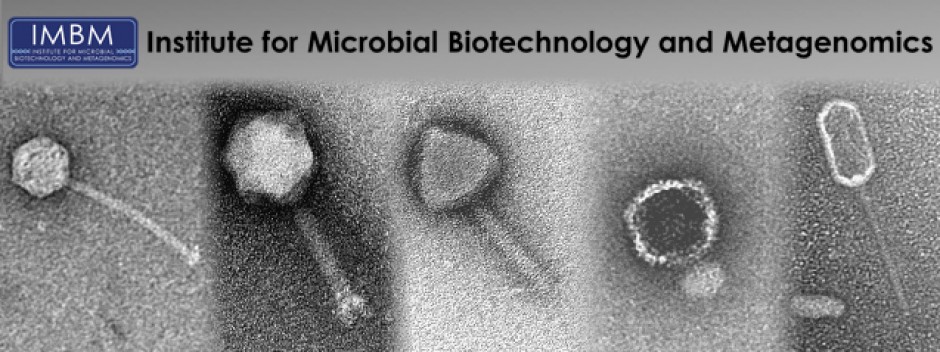Prof Marla Tuffin, Acting Director of IMBM, leads the UWC research team, and includes Prof Michael Davies-Coleman, in a new EU-FP7 funded project called PharmaSea, which was launched in October 2012. The press release follows:
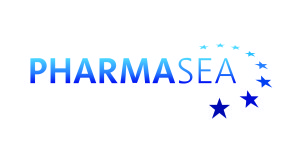
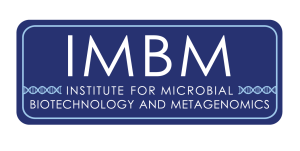
The collaborative project PharmaSea will bring European researchers to some of the deepest, coldest and hottest places on the planet. Scientists from the UK, Belgium, Norway, Spain, Ireland, Germany, Italy, Switzerland and Denmark will work together to collect and screen samples of mud and sediment from huge, previously untapped, oceanic trenches. The large-scale, four-year project is backed by more than €9.5 million of EU funding and brings together 24 partners from 14 countries from industry, academia and non-profit organisations, including scientists from the University of the Western Cape.
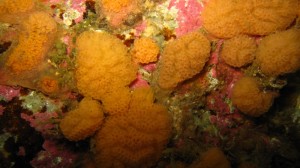
Colourful sea squirt / Cold water Ascidiaceae, a Botryllus specie, Copyright: Kirsti Helland, Marbio, University of Tromsø, Norway
The PharmaSea project focuses on biodiscovery research and the development and commercialisation of new bioactive compounds from marine organisms, including deep-sea sponges and bacteria, to evaluate their potential as novel drug leads or ingredients for nutrition or cosmetic applications. The international team of scientists is led by Professor Marcel Jaspars of the University of Aberdeen in Scotland, and coordinated by Dr. Camila Esguerra of the University of Leuven in Belgium.
One of the aims of PharmaSea is to discover new marine bacteria that can produce novel antibiotics: “There’s a real lack of good antibiotics in development at the moment. There hasn’t been a completely new antibiotic registered since 2003. If nothing’s done to combat this problem we’re going to be back to a ‘pre-antibiotic-era’ in around ten or twenty years, where bugs and infections that are currently quite simple to treat could be fatal”, says Marcel Jaspars, who is Professor of Chemistry and Director of the Marine Biodiscovery Centre at the University of Aberdeen. PharmaSea will also focus on drug discovery for neurological, inflammatory, and other infectious diseases.
Only a handful of samples have ever been taken from deep trenches and investigated, so the project is breaking new ground. “PharmaSea will not only be exploring new territory at the bottom of the oceans, but also new areas in ‘chemical space’. With our broad platform of cutting-edge bioassays to detect drug-like activity, we’ll be testing many unique chemical compounds from these marine samples that have literally never seen the light of day. We’re quite hopeful that we’ll find a number of exciting new drug leads”, says Dr. Camila Esguerra, Industrial Research Fellow and Lecturer with the Laboratory for Molecular Biodiscovery at the University of Leuven,
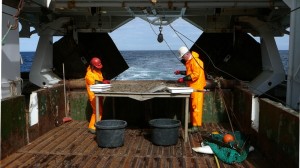
Arctic Collection in 2009 with Project Leader Marcel Jaspars, Copyright: Marcel Jaspars, University of Aberdeen
The international team will employ strategies commonly used in the salvage industry to carry out the sampling. Using fishing vessels, researchers will drop a sampler on a reel of cables to the trench bed to collect sediment. Scientists will then attempt to grow unique bacteria and fungi from the sediment that can be extracted to isolate novel drug-like molecules for pharmacological testing. Partners from China, Chile, Costa Rica, New Zealand and South Africa will support the PharmaSea project. The first field tests will be carried out next autumn in the Atacama Trench in the Eastern Pacific Ocean, about 100 miles off the coast of Chile and Peru. The team will also search the Arctic waters off Norway and the Antarctic via Italian and South African partners. Deep trenches will also be accessed off New Zealand and China.
Marine organisms that live more than 2,000 meters below the sea level are considered to be an interesting source of novel bioactive compounds as they survive under extreme conditions. “Trenches are separated from each other and represent islands of diversity. They are not connected to each other and life has evolved differently in each one,” explains Marcel Jaspars.
New Scientist reports on PharmaSea ! : http://www.newscientist.com/article/mg22129530.800-antibiotic-abyss-the-extreme-quest-for-new-medicines.html
Further information: http://www.pharma-sea.eu
Information for editors:
CONTACT Communication:
Annette Langbehn
BIOCOM AG
Phone: +49 30 26492171
Email: press(at)pharma-sea.eu
Euan Wemyss
University of Aberdeen, King’s College (Office of External Affairs)
Phone: +44 1224 272960
Email: e.wemyss(at)abdn.ac.uk
LINKS:
PharmaSea: http://www.pharma-sea.eu
Marcel Jaspars / University of Aberdeen: http://www.abdn.ac.uk/ncs/profiles/m.jaspars/
Camila Esguerra / KU Leuven: http://www.kuleuven.be/wieiswie/nl/person/00044015
Partners:
· University of Leuven (Belgium)
· The University of Aberdeen (UK)
· Aquapharm Biodiscovery Ltd (UK)
· University of Tromsø (Norway)
· eCoast Research Centre (Belgium)
· Biobridge Ltd (UK)
· Fundación MEDINA (Spain)
· University College Cork, National University of Ireland
· BIOCOM AG (Germany)
· Stazione Zoologica Anton Dohrn (Italy)
· Consiglio Nazionale delle Ricerche ibp-cnr (Italy)
· University of Santiago de Compostela (Spain)
· The Royal Society of Chemistry (UK)
· c-LEcta GmbH (Germany)
· Technical University of Denmark
· Deep Tek Ltd (UK)
· Advanced Chemistry Development UK Ltd
· Wuhan University (China)
· Institute of Microbiology – Chinese Academy of Sciences (China)
· University of the Western Cape (South Africa)
· Institute for Cell Dynamics and Biotechnology (Chile)
· National Biodiversity Institute of Costa Rica
· International Union for Conservation of Nature (Switzerland)
· University of Waikato (New Zealand)
